
John F. Sears, “Refuge Must Be Given: Eleanor Roosevelt, the Jewish Plight and the Founding of Israel” (West Lafayette, IN: Purdue UP, 2022) pp. 327.
Throughout “America and the Holocaust,” Ken Burns’, Lynn Novick’s and Sarah Botstein’s six-hour documentary, one name kept being mentioned: Eleanor Roosevelt. In her column “My Day” as well as in public statements, multiple activities and private exchanges, Roosevelt was a fierce advocate of admitting Jewish refugees to the United States in the years when their admission was the difference between life and death. John Sears, who directed the Franklin and Eleanor Roosevelt Institute in the 1980s and ’90s and co-edited Eleanor Roosevelt’s papers in 2007, has written an important book detailing her work on behalf of Jewish refugees during her years as first lady and then, perhaps more importantly and more effectively, in her career after the death of her husband on April 12, 1945.
No longer constrained by the limitations of her role and her marriage, she spoke her mind, lending her name, presence, prestige, talents and energies to the post-war refugee crisis.
FDR was at best a cautious and lukewarm supporter of Zionism, but as his widow, Eleanor Roosevelt became a fierce advocate for the creation of the Jewish State.
FDR was at best a cautious and lukewarm supporter of Zionism, but as his widow, Eleanor Roosevelt became a fierce advocate for the creation of the Jewish State and was an integral part of the efforts 75 years ago this week to pass the November 29, 1947 United Nations Resolution supporting the establishment of a separate Jewish and Arab State in Mandate Palestine.
It wasn’t supposed to happen quite that way.
Judging from her childhood upbringing and the antisemitism that characterized elite, monied WASP society, Eleanor Roosevelt was a young antisemite. One can go through her early writings and family history and see a disdain for Jews shared by her social class, freely expressed, seldom condemned, and widely assumed. Jews were too pushy, too aggressive, unrefined, materialistic, or shabby and unkempt. Ironically, Franklin Delano Roosevelt’s family was far more accepting of the Jews who were his father’s business colleagues as well as neighbors in Hyde Park; by the time FDR became Governor, Jews were an essential part of his coalition. As Yehuda Bauer, Israel’s preeminent Holocaust historian, put it, “antisemitism was against the society FDR was trying to build.” Well before her husband became President, Eleanor’s views had changed and as her social circle widened, including many Jews who were integral to Democratic politics and supportive of her values. As her experience broadened, she enjoyed enduring and close friendships with Jews, especially Jewish women.
Unlike her husband, who saw things in political terms, Eleanor Roosevelt perceived what she experienced in deeply personal terms; perhaps this difference reflected their genders, or perhaps it was a result of her innate shyness. FDR was outgoing and gregarious; he talked more than he listened. Eleanor visited many places he could not go because of his physical limitations. She not only saw more but also listened more and reflected upon what she heard. Throughout Sears’ book, we learn how deeply she responded to people and how they influenced the views she espoused.
Her widely syndicated column “My Day,” her many public appearances, the attention that all First Ladies command as well as the enormous influence she had later as the widow of a widely popular President who continued her work in political and humanitarian affairs gave her unique influence.
Yet despite her many efforts, she was only mildly effective in achieving her goals regarding accepting refugees before the war. It was not for want of trying.
Sears details her tactics. Eleanor Roosevelt was deeply involved with staunch advocates for the refugees including James McDonald, High Commissioner for Refugees (also the first US Ambassador to Israel), and Clarence Pickett of the American Friends Service Committee, the Quaker organization committed deeply to refugee causes. They were not just allies but also friends. When formal meetings with the President might be controlled by White House staff and FDR himself, she invited these men and others with similar views to dine with the first family and to have some private time with the President. She forwarded information to her husband that he might not otherwise see and also approached other members of the Roosevelt Administration with specific requests, most especially Sumner Welles, the Under Secretary of State, the man in the State Department most responsive — perhaps more accurately least unresponsive — to Jewish issues.
There were three limits to her effectiveness. First, there was little political support for receiving refugees — especially Jewish refugees — during the Great Depression, since they might take American jobs. Later, in the pre-war and early war years, it was feared that some might be planted as German spies or as Communists. Furthermore, the State Department considered these refugees potentially compromised if they had relatives in German-occupied countries, which so many did and therefore routinely excluded them. Further, when specific inquiries were made, FDR might forward a request to Welles or Eleanor Roosevelt might contact him directly and Welles would assign the response to his subordinate Breckenridge Long, a noted anti-refugee antisemite whose staff shared his views, to prepare a response. For a very long time — far too long — FDR trusted Long. So his wife’s efforts died there. Finally, the President was of the view, all too widely shared, that the U.S. must win the war and then address the issue of refugees. As Jan Karski, then a young Polish courier, well knew, by then it would be too late.
Eleanor Roosevelt persisted, especially when the issue involved children, and so she supported the failed Wagner-Rogers Bill to admit 20,000 children after the November 1938 pogroms, commonly known as Kristallnacht, and also the efforts to admit English children escaping the German bombing in the Battle of Britain. Her concern for children was genuine and, after the war, decisive in her support for Israel and her deep involvement in Youth Aliyah, which first brought Jewish children fleeing Nazi Germany to Palestine and then resettled orphan children in Palestine and, after May 15, 1948, in Israel. Her commitment strengthened even more when Youth Aliyah devoted itself to caring for North African and Arab countries’ Jewish immigrant children and facilitating their integration into Israel.
The death of her husband did not stymie Eleanor Roosevelt’s political influence. She still had a very significant public voice, many public platforms and influence within the Truman administration as the very public wife of the former President lauded by the public for defeating the Depression and the Nazis. She no longer needed to consult her husband’s political staff or the State Department whether to lend her name or her voice to specific political causes. She traveled widely. As far as Jews and Jewish efforts to establish a Jewish State were concerned, these travels were all important in shaping her commitment to Israel.
She did not begin as a Zionist. Her class and many of her Jewish friends were either anti-Zionist or non-Zionists, feeling at home in the United States and fearing that the establishment of a Jewish state might hamper their acceptance as Americans. But during the immediate post-war years, as Holocaust survivors were living in Displaced Persons (DP) Camps, and as the United States was still reluctant to receive them, the resettlement of refugees in Palestine united most Jews and enjoyed the full support of the former first lady.
She reported on her trip to a Displaced Persons Camp:
“Most of all, I remember an old woman whose family had been driven from home by the war’s madness and brutality. I had no idea who she was and we could not speak each other’s language, but she knelt in the muddy road and simply threw her arms around my knees. ‘Israel,’ she murmured over and over. ‘Israel! Israel!’
“As I looked at her weather-beaten face and heard her old voice, I knew for the first time what that small land meant to so many, many people.”
Eleanor Roosevelt became a fierce advocate for the establishment of Israel and cemented herself as a loyal defender, using her influence first within the Truman administration and later in the public sphere as a critic of the Eisenhower administration’s tilt toward the Arabs.
President Truman appointed her to the U.S. United Nations delegation, where she championed the creation of the International Declaration of Human Rights in December of 1948. She played an important role in the U.S. support for the November 29th, 1947 UN General Assembly Resolution in support of the creation of a Jewish State. There was fierce opposition from the State Department led by war-hero General George Marshall. Pitted against them were advisors to Truman including Clark Clifford and David Niles as well as the pressure from the Jewish community, including Truman’s friend and former partner Eddie Jacobson. Eleanor Roosevelt fought alongside them both privately and publicly and was one of the few within the State Department to support the partition plan, the creation in Palestine of two states: an Arab State and a Jewish State.
The Resolution passed by a more than two-to-one vote with both U.S. and Soviet support. Months later she also pushed for American recognition of the Jewish State, once again against State Department officials. George Marshall had told the President privately that he would not vote for him in 1948 if he recognized Israel. Eleanor Roosevelt countered that the U.S. should recognize and support the fledgling state. In the spirit of the Cold War, she advocated that the U.S. be the first. It was known that the Soviet Union would recognize the Jewish State not because of Stalin’s love of Jews but because it would weaken the British Empire.
Eleanor Roosevelt visited Israel four times between its establishment and her death in 1962, maintaining close personal friendships with its leaders and seeing on each of her trips not only the progress that Israel had made but also the people who she had come to know as friends including Joseph Baratz, the founder of Degania Alef, and Moshe Kol, her partner in Youth Aliyah whose work she championed to her dying day. Characteristically, she not only saw leadership but also the ordinary people she had met in DP camps or as orphaned children or young couples in development towns, seeing their progress, visiting their homes, admiring their accomplishments. She was deeply impressed by the young and dynamic nation and wrote of it glowingly.
Sears comments time and again that Eleanor Roosevelt had bought into the Israeli narrative, celebrating its achievements, and contrasting them with the lack of progress and unending enmity of the Arab nations and Arab leaders toward Israel. Her relationship with Israel was deep, personal and meaningful. Sears compensates for her one-sided perspective by reminding his readers of what she did not see as she became a leading — if not the leading — gentile supporter of Israel in the United States.
Reading of her efforts and the struggle to create and sustain the Jewish State takes us back to the birth of Israel, which has just celebrated its 75th anniversary. Eleanor Roosevelt was a great woman and a cherished friend of the Jewish people. She believed that the United States had failed the Jews once and must not fail them again. She felt that friendship for Israel was an expression of the best of American values, the best of human values. One would hope that the incoming Israeli government does not betray the trust she placed in the Jewish State.
Michael Berenbaum is a Distinguished Professor of Jewish Studies and Director of the Sigi Ziering Institute: Exploring the Ethical and Religious Implications of the Holocaust at American Jewish University.






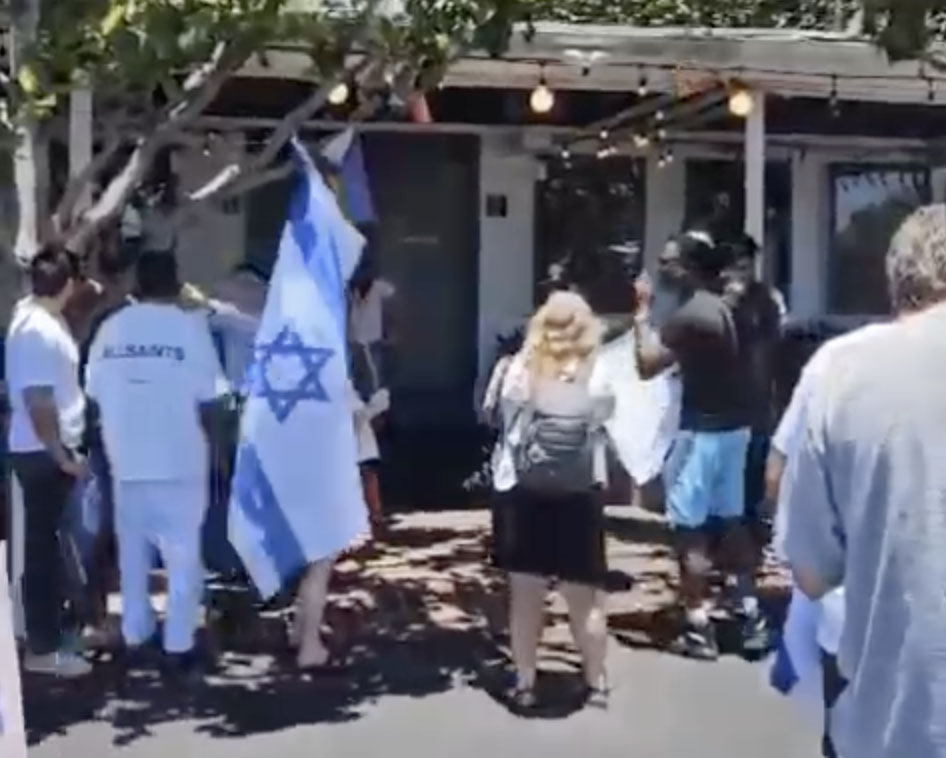
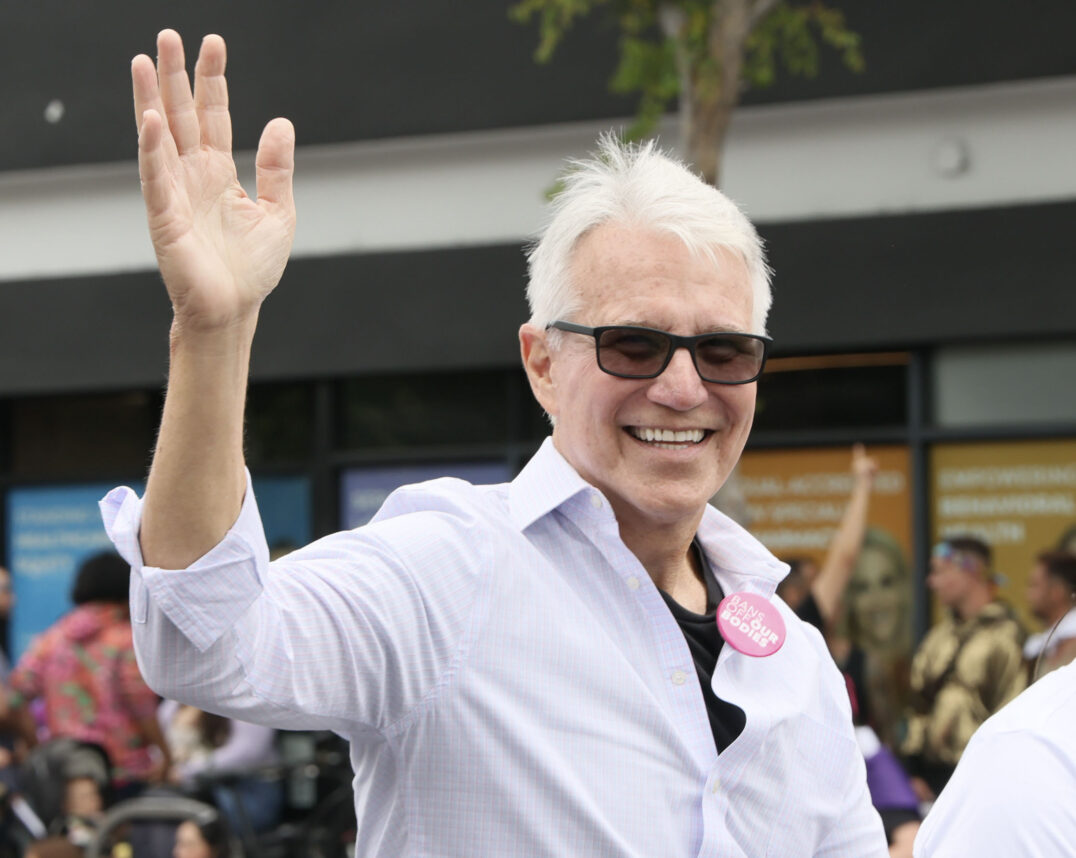


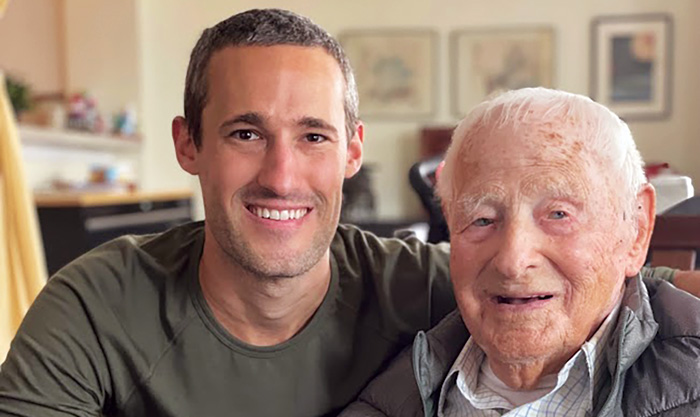



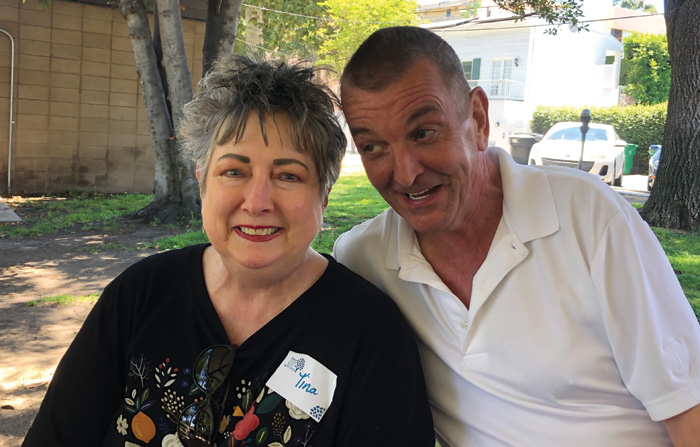
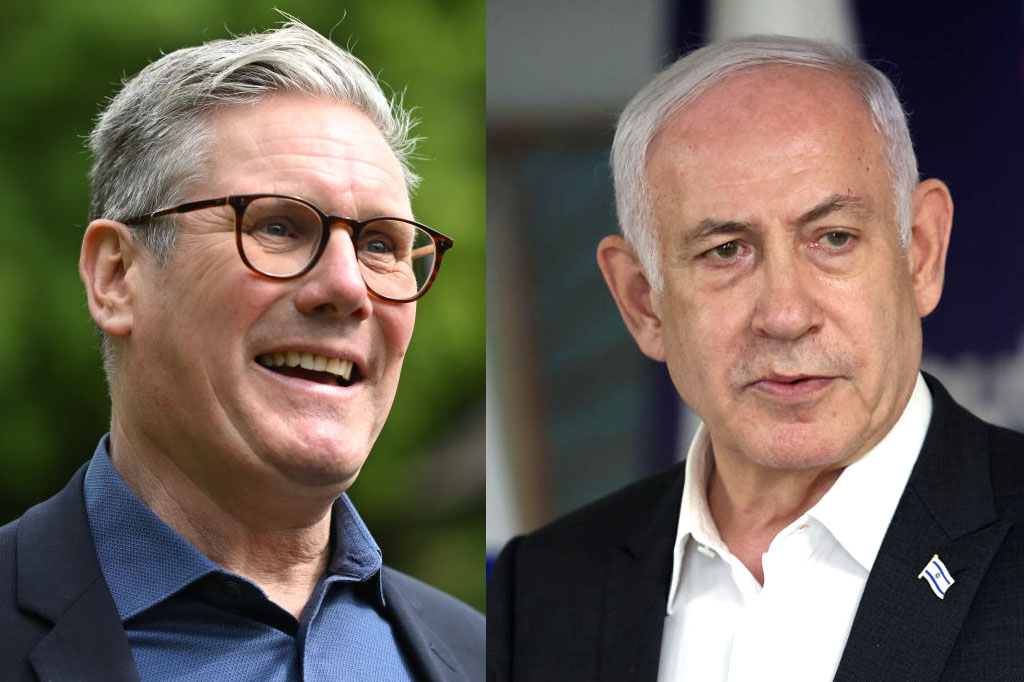
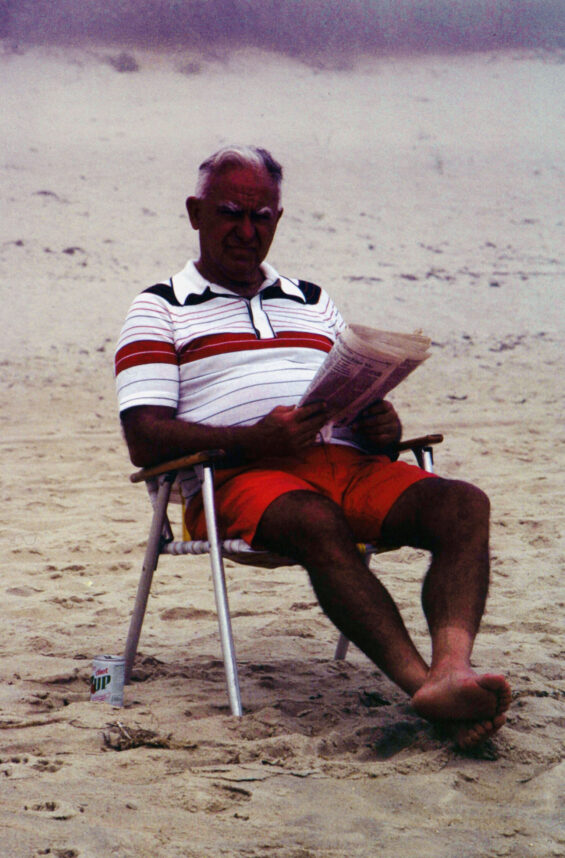



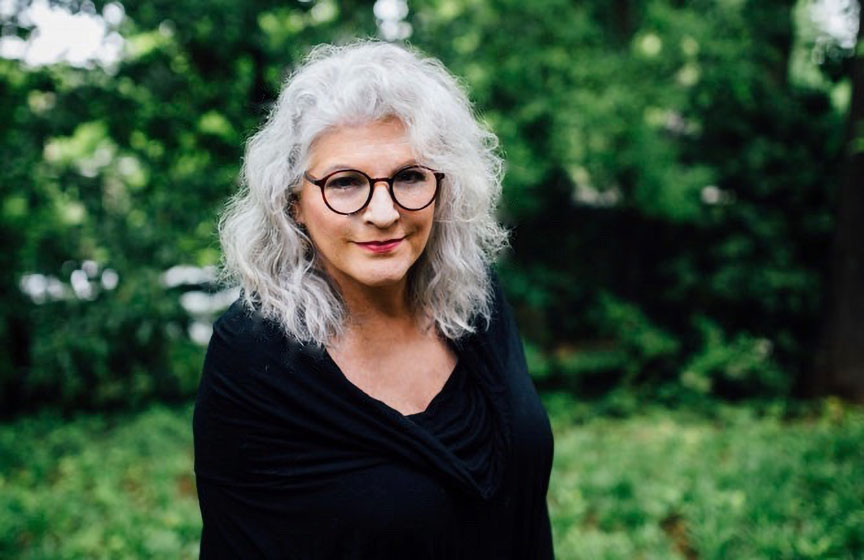
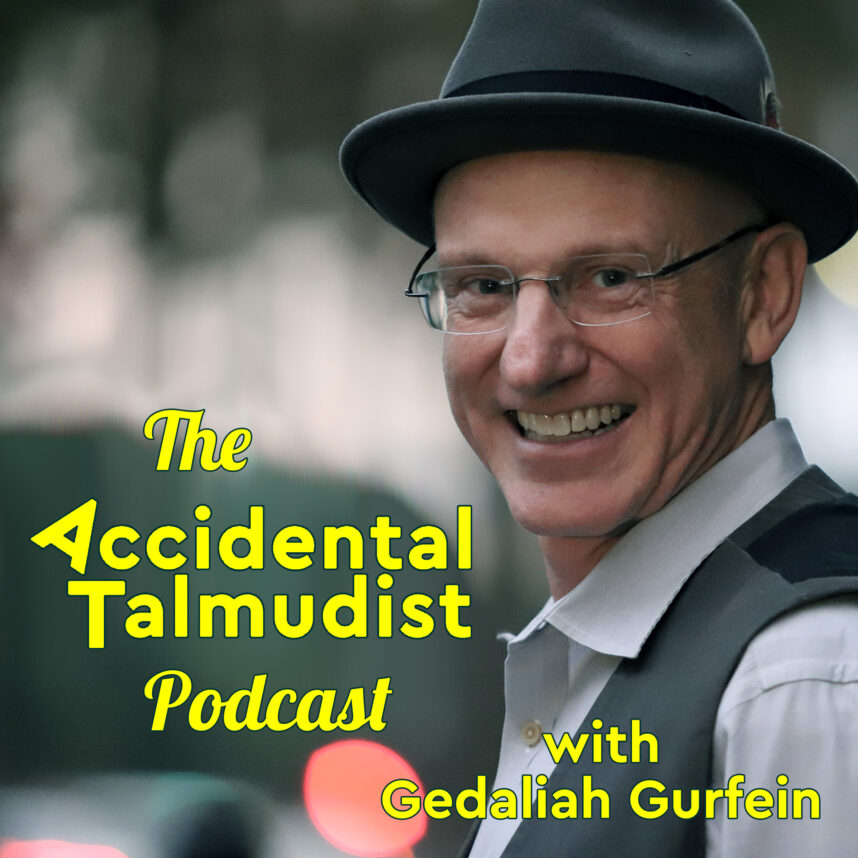
 More news and opinions than at a Shabbat dinner, right in your inbox.
More news and opinions than at a Shabbat dinner, right in your inbox.